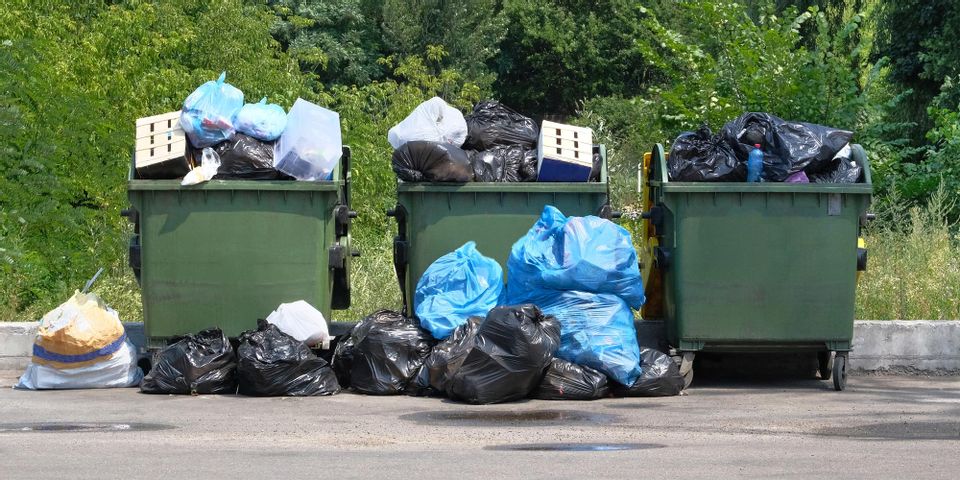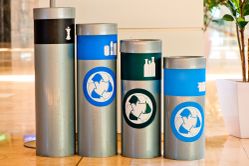5 Smart Practices for Commercial Waste Management

It’s common for offices and other small businesses to have containers for recycling items like soda cans and paper. This is an excellent starting point for commercial waste management, but you can take several other steps to decrease and manage all kinds of waste from your business. Keep trash out of landfills and reduce your waste management costs by instituting the following policies and practices.
How to Manage Your Waste More Effectively
1. Know What You’re Throwing Away
The first step in an effective waste management plan is knowing how much and what kind of waste your business generates. Identify all the waste receptacles in your business and note if certain areas produce specific types of trash. For example, soda cans that fill wastebaskets in or near the kitchen or cafeteria would benefit from a recycling bin just for metal.
2. Measure Waste
Note how full each receptacle gets before collection day so you can add, eliminate, or increase the size of containers to fit the area’s needs. Once all waste is gathered and taken to a dumpster for collection, observe the total volume—either by weight, the number of bags, or how full your dumpster or roll-off container looks. Knowing how much the business throws away each week allows you to get accurate pricing when hiring a waste management provider.
3. Label Waste Containers
 To encourage employees and visitors to recycle, label each bin with the name and picture of the type of material that belongs inside.
To encourage employees and visitors to recycle, label each bin with the name and picture of the type of material that belongs inside.
Depending on what employees are used to, you might need to post reminders to rinse out plastic food containers and perform other helpful practices. Periodically check that everyone is putting the correct materials in each container.
4. Separate Hazardous Waste
Along with enabling metal, plastic, and paper recycling, separating different types of waste ensures that you aren’t mixing potentially hazardous substances with inert material—depending on your industry. It also lowers the possibility of mixing substances that could create dangerous chemical reactions. Ensure everyone knows what is considered hazardous and where they should dispose of it.
5. Take Advantage of Special Programs
Some items are acceptable for special recycling programs. For example, your office supply store or copier provider may recycle or refill your printer and toner cartridges. Home improvement stores and other local retailers may have drop-off locations for batteries or lightbulbs. Other programs collect certain materials for charity, such as the pop tab collection program for Ronald McDonald House Charities®.
Family-owned and -operated for 30 years, Rocket Disposal & Greer Port-A-Potty Services in Rushville, IL, will help with your waste management needs. From dumpsters and roll-off containers to portable toilets, these experts can answer any questions you have about commercial or residential waste. Call (217) 322-6310 or visit their website for more information.
About the Business
Have a question? Ask the experts!
Send your question

